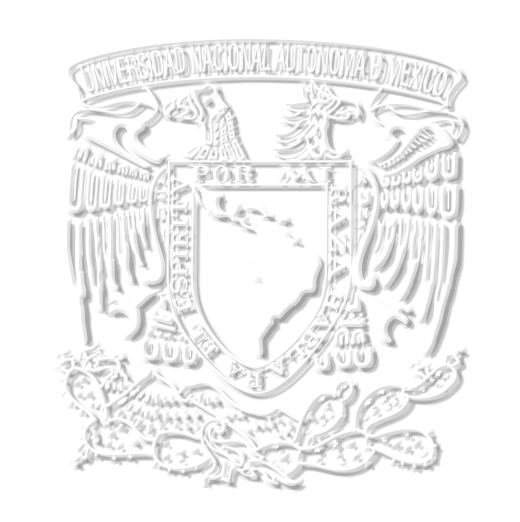Abstract
Universities disseminate their scientific production using research portals integrating their researchers’ publications from bibliographic databases such as Web of Science. This study examined the correspondence between the available information of the University of Salamanca researchers in Web of Science and the USAL Research Portal. The methodology employed was mixed and included automated and manual analysis techniques for Web of Science data processing, which made it possible to identify inconsistencies in the publication and author data. We developed a five-phase methodology; it provided a semi-automatic extraction of ResearcherID identifiers from Web of Science of researchers who did not have this identifier in the USAL Portal and helped validate the correctness of the existing identifiers. The method used in the analysis and the typification of incidences are replicable in any research entity. The conclusions determine the consistency of the information provided by Web of Science, advocate for the autonomy of institutional platforms from external sources, and offer solutions to achieve the highest quality in a university’s data in scientific production commercial platforms.
References
Birkle, Caroline, David Pendlebury, Joshua Schnell y Jonathan Adams. 2020. “Web of Science as a Data Source for Research on Scientific and Scholarly Activity”. Quantitative Science Studies 1 (1): 363-76. https://doi.org/10.1162/qss_a_00018
Borrego, Ángel. 2014. Sistemas de identificación unívoca de investigadores. Madrid: Conferencia de Rectores de las Universidades Españolas (CRUE); Red de Bibliotecas Universitarias Españolas (Rebiun). http://hdl.handle.net/20.500.11967/43
Boudry, Christophe, y Manuel Durand-Barthez. 2020. “Use of Author Identifier Services (ORCID, ResearcherID) and Academic Social Networks (Academia.edu, ResearchGate) by the Researchers of the University of Caen Normandy (France): A Case Study”. PLoS One 15 (9), e0238583. https://doi.org/10.1371/journal.pone.0238583
Calderón-Rehecho, Andoni. 2017. “Portales de producción científica”. Anuario ThinkEPI 11: 247-55. https://doi.org/10.3145/thinkepi.2017.45
Craft, Anna. 2020. “Managing Researcher Identity: Tools for Researchers and Librarians”. Serials Review 46 (1): 44-49. https://doi.org/10.1080/00987913.2020.1720897
Cujba, Rodica. 2019. “The Role of Persistent Identifiers in E-Science”. Journal of Social Sciences 2 (4): 40-46. https://doi.org/10.5281/zenodo.3550705
Davis, Rebecca, y Laura Saunders. 2020. “Essential Skills for Corporate and Special Librarians”. Journal of Library Administration 60 (7): 762-83. https://doi.org/10.1080/01930826.2020.1786984
Donner, Paul. 2017. “Document Type Assignment Accuracy in the Journal Citation Index Data of Web of Science”. Scientometrics 113 (1): 219-36. https://doi.org/10.1007/s11192-017-2483-y
Franceschini, Fiorenzo, Domenico Maisano y Luca Mastrogiacomo. 2016. “Empirical Analysis and Classification of Database Errors in Scopus and Web of Science”. Journal of Informetrics 10 (4): 933-53. https://doi.org/10.1016/j.joi.2016.07.003
Harrison, Andrew Marc, y Anthony Mark Harrison. 2016. “Necessary but Not Sufficient: Unique Author Identifiers”. BMJ Innovations 2 (4): 141-43. https://doi.org/10.1136/bmjinnov-2016-000135
Hernández-Sampieri, Roberto, y Christian Paulina Mendoza Torres. 2018. Metodología de la investigación. Las rutas cuantitativa, cualitativa y mixta. Ciudad de México: McGraw Hill Education.
Hoffman, Starr, ed. 2016. Dynamic Research Support for Academic Libraries. Londres: Facet Publishing. https://doi.org/10.29085/9781783301225
Iribarren-Maestro, Isabel. 2018. “Bibliometría y bibliotecas universitarias: ¿matizando el perfil profesional?”. Anuario ThinkEPI 12: 142-51. https://doi.org/10.3145/thinkepi.2018.15
Jubb, Michael. 2016. “Libraries and the Support of University Research”. En Quality and the Academic Library: Reviewing, Assessing and Enhancing Service Provision, editado por Jeremy Atkinson, 143-56. Cambridge, Massachusetts: Chandos Publishing. https://doi.org/10.1016/B978-0-12-802105-7.00014-2
Krauskopf, Erwin, y Mauricio Salgado. 2023. “Inconsistency in the Registration of the Digital Object Identifier (DOI) of Articles on Web of Science and Scopus”. Investigación Bibliotecológica: archivonomía, bibliotecología e información 37 (96): 129-44. https://doi.org/10.22201/iibi.24488321xe.2023.96.58784
Lazonder, Ard, y Noortje Janssen. 2022. “Quotation Accuracy in Educational Research Articles”. Educational Research Review 35, e100430. https://doi.org/10.1016/j.edurev.2021.100430
Mallery, Mary. 2016. “Scholarly Identification Systems in a Global Market: The ORCID Solution”. International Information and Library Review 48 (4): 269-73 https://doi.org/10.1080/10572317.2016.1243962
Medina-González, Alejandro, Carlos Díaz-Redondo, Blanca Rodríguez-Bravo y José Antonio Frías. 2024. “Análisis de la producción científica de la Universidad de Salamanca indexada en Scopus (2010-2015)”. Información, Cultura y Sociedad (50): 49-67. https://doi.org/10.34096/ics.i50.13697
Mering, Margaret. 2017. “Correctly Linking Researchers to Their Journal Articles: An Overview of Unique Author Identifiers”. Serials Review 43 (3-4): 265-67. https://doi.org/10.1080/00987913.2017.1386056
Moral-Muñoz, José Antonio, Enrique Herrera-Viedma, Antonio Santisteban-Espejo y Manuel Jesús Cobo. 2020. “Software Tools for Conducting Bibliometric Analysis in Science: An Up-to-Date Review”. El Profesional de la Información 29 (1), e290103. https://doi.org/10.3145/epi.2020.ene.03
Olivas-Ávila, José Alonso, y Bertha Musi-Lechuga. 2014. “Validez y fiabilidad del Researcher ID y de ‘Web of Science Production of Spanish Psychology’”. International Journal of Clinical and Health Psycholog y 14 (1): 58-66. https://doi.org/10.1016/S1697-2600(14)70037-7
Penteado Filho, Roberto de Camargo, y Wilson Corrêa da Fonseca Júnior. 2017. “O problema da padronização das afiliações de autores na base de dados Web of Science: o caso Embrapa e sua solução”. Número especial, Em Questão 23: 74-93. https://doi.org/10.19132/1808-5245230.74-93
Sandberg, Jane, y Qiang Jin. 2016. “How Should Catalogers Provide Authority Control for Journal Article Authors? Name Identifiers in the Linked Data World”. Cataloging and Classification Quarterly 54 (8): 537-52. https://doi.org/10.1080/01639374.2016.1238429
Santos, Thamyres Vieira dos, y Giovana Deliberali Maimone. 2023. “Recuperação da informação e visibilidade científica sob a perspectiva de identificadores persistentes”. Revista Ibero-Americana de Ciência da Informação 16 (3): 518-42. https://doi.org/10.26512/rici.v16.n3.2023.44053
Silva, Eduardo Graziosi, y José Augusto Chaves Guimarães. 2023. “O escritório de comunicação científica como perspectiva de atuação para bibliotecas universitárias”. Ibersid: Revista de Sistemas de Información y Documentación 17 (1): 47-58. https://doi.org/10.54886/ibersid.v17i1.4917
Torres-Salinas, Daniel, y Wenceslao Arroyo-Machado. 2022. “APIs en contextos bibliométricos: introducción básica y corpus exhaustivo”. Anuario ThinkEPI 16, e16a09. https://doi.org/10.3145/thinkepi.2022.e16a09
Tran, Ngoc-Yen, y Emily Chan. 2020. Supporting Scholarly Research: Current and New Opportunities for Academic Libraries. Choice, Asociación de Bibliotecas Universitarias y de Investigación. https://www.choice360.org/research/supporting-scholarly-research-current-and-new-opportunities-for-academic-libraries/
Velez-Estevez, Antonio, Ignacio Javier Perez, Pablo García-Sánchez, José Moral-Munoz y Manuel Jesús Cobo. 2023. “New Trends in Bibliometric APIs: A Comparative Analysis”. Information Processing and Management 60 (4), e103385. https://doi.org/10.1016/j.ipm.2023.103385
Wang, Qi, y Ludo Waltman. 2016. “Large-Scale Analysis of the Accuracy of the Journal Classification Systems of Web of Science and Scopus”. Journal of Informetrics 10 (2): 347-64. https://doi.org/10.1016/j.joi.2016.02.003
Zhu, Junwen, Inmaculada, Guangyuan Hu y Weishu Liu. 2019. “DOI Errors and Possible Solutions for Web of Science”. Scientometrics 118 (2): 709-18. https://doi.org/10.1007/s11192-018-2980-7
Authors:
- They must sent the publication authorization letter to Investigación Bibliotecológica: archivonomía, bibliotecología e información.
- They can share the submission with the scientific community in the following ways:
- As teaching support material
- As the basis for lectures in academic conferences
- Self-archiving in academic repositories.
- Dissemination in academic networks.
- Posting to author’s blogs and personal websites
These allowances shall remain in effect as long as the conditions of use of the contents of the journal are duly observed pursuant to the Creative Commons:Attribution-NonCommercial-NoDerivatives 4.0 license that it holds. DOI links for download the full text of published papers are provided for the last three uses.
Self-archiving policy
For self-archiving, authors must comply with the following
a) Acknowledge the copyright held by the journal Investigación Bibliotecológica: archivonomía, bibliotecología e información.
b) Establish a link to the original version of the paper on the journal page, using, for example, the DOI.
c) Disseminate the final version published in the journal.
Licensing of contents
The journal Investigación Bibliotecológica: archivonomía, bibliotecología e información allows access and use of its contents pursuant to the Creative Commons license: Attribution- Non-commercial-NoDerivatives 4.0.

Investigación Bibliotecológica: archivonomía, bibliotecología e información by Universidad Nacional Autónoma de México is licensed under a Creative Commons Attribution-NonCommercial-NoDerivatives 4.0 Internacional License.
Creado a partir de la obra en http://rev-ib.unam.mx/ib.
This means that contents can only be read and shared as long as the authorship of the work is acknowledged and cited. The work shall not be exploited for commercial ends nor shall it been modified.
Limitation of liability
The journal is not liable for academic fraud or plagiarism committed by authors, nor for the intellectual criteria they employ. Similarly, the journal shall not be liable for the services offered through third party hyperlinks contained in papers submitted by authors.
In support of this position, the journal provides the Author’s Duties notice at the following link: Responsibilities of authors.
The director or editor of the journal shall notify authors in the event it migrates the contents of the journal’s official website to a distinct IP or domain.








